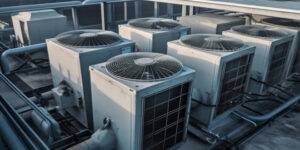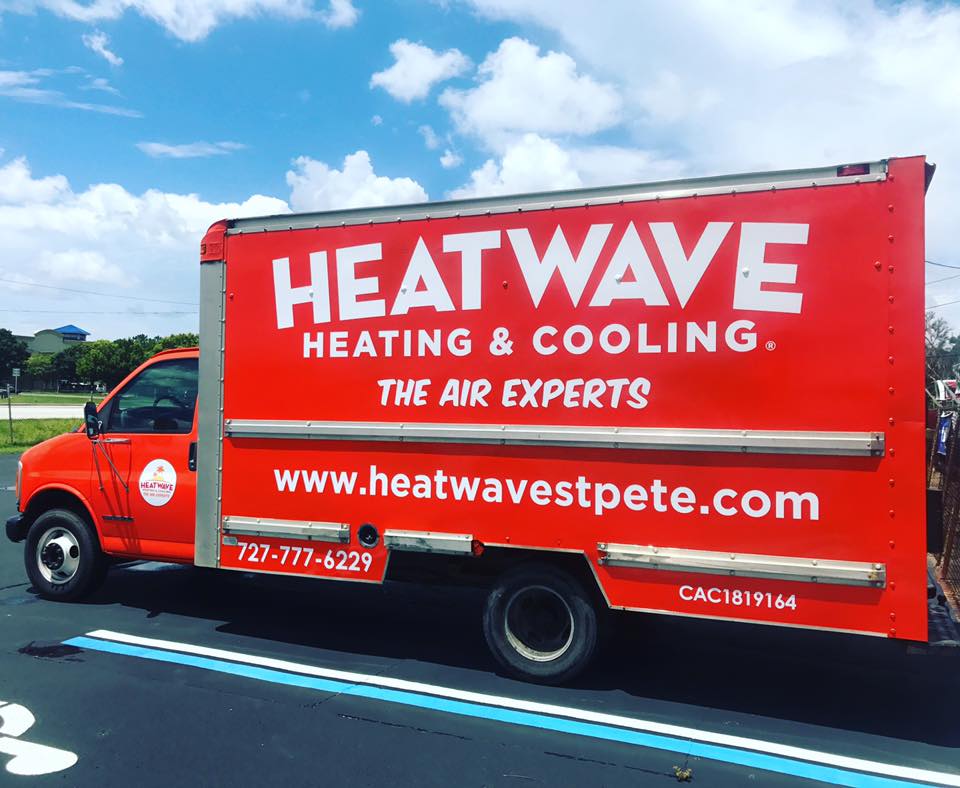For home and business owners in Tampa Bay, FL, understanding your HVAC system is crucial for maintaining comfort year-round. This guide will demystify what HVAC stands for and explore the primary functions of its components, ensuring your space remains a haven regardless of the season.

What Does HVAC Stand For?
HVAC is an acronym that stands for Heating, Ventilation, and Air Conditioning. It encompasses systems used to move air between indoor and outdoor areas, along with heating and cooling both residential and commercial buildings. The goal of an HVAC system is to provide thermal comfort and acceptable indoor air quality. Here’s a breakdown of each component and its primary function:
Heating
The heating component of an HVAC system is responsible for increasing the temperature inside your home or business to keep you warm during colder months. There are various types of heating systems, including furnaces, heat pumps, and boilers. Each has its unique method of generating heat, but they all serve the same purpose: to keep you cozy when it’s cold outside.
- Furnaces:
The most common type of heating system in the U.S., furnaces can run on electricity, natural gas, propane, or oil. They are known for their ability to heat spaces quickly and are typically found in basements, closets, or attics. The average lifespan of a furnace is about 15-20 years, with costs for installation ranging from $2,500 to $6,000, depending on the type and efficiency. Regular maintenance, including filter changes and annual inspections, can extend the life of your furnace and ensure it runs efficiently.
- Heat Pumps:
Heat pumps are incredibly efficient systems that provide both heating and cooling. They work by transferring heat from the outside air or ground into your home during winter and reversing the process in the summer. The average lifespan of a heat pump is around 10-15 years, with costs for a new installation varying between $4,000 and $7,000. Maintenance includes checking the refrigerant levels, cleaning the coils, and ensuring the system is running smoothly.
- Boilers:
Boilers use heated water to provide warmth, which can be delivered through radiators, baseboard heaters, or underfloor heating systems. They can be powered by natural gas, oil, propane, or electricity. Boilers have a longer lifespan, often exceeding 15-30 years, with installation costs ranging from $3,500 to $8,000. Annual maintenance is crucial for boilers, including checking for leaks, ensuring the pressure levels are correct, and flushing the system to remove any sediment.
Ventilation
Ventilation is the process of exchanging or replacing air in any space to provide high indoor air quality, which involves temperature control, replenishment of oxygen, and removal of moisture, odors, smoke, heat, dust, airborne bacteria, carbon dioxide, and other gasses. It can be achieved mechanically using fans and duct systems or naturally through windows and vents. Proper ventilation helps control moisture levels, which is crucial in areas with high humidity like Tampa Bay, FL. Maintenance of ventilation systems involves cleaning ducts, replacing filters, and ensuring that vents are not blocked. The lifespan and costs can vary widely based on the system’s complexity and the size of the space being ventilated.
Air Conditioning
Air conditioning systems are designed to cool your home or business by removing heat and moisture from the interior air. They work through a process that draws warm air in, cools it, and then redistributes the cooled air back into the space, lowering the temperature.
- Central Air Conditioners:
These systems are ideal for cooling entire homes or large spaces efficiently. They consist of an outdoor unit (condenser) and an indoor unit (evaporator coil) connected through ductwork. The average lifespan of a central air conditioner is about 12-15 years, with installation costs ranging from $3,000 to $7,000, depending on the unit’s size and efficiency. Regular maintenance, including annual servicing, cleaning the filters, and ensuring the ductwork is intact, can improve performance and extend the system’s life.
- Ductless Mini-Split Systems:
Perfect for homes without ductwork or for cooling specific areas, ductless mini-splits have an outdoor compressor unit and one or more indoor air handling units. They are known for their efficiency and the ability to control temperatures in and provide cool air to individual rooms. The average lifespan of this cooling system is around 12-20 years, with costs for a single unit installation ranging from $2,000 to $14,500, depending on the number of indoor units required. Maintenance for this ductless system includes cleaning filters, checking the refrigerant level, and ensuring the outdoor unit is free from debris.
Comprehensive Maintenance and Care
For all HVAC components, regular maintenance is key to ensuring efficiency, extending lifespan, and reducing the need for costly repairs. This includes annual check-ups by a professional, regular cleaning, and prompt repairs when necessary. Home and business owners should also be aware of the signs that indicate their system may need attention, such as unusual noises, decreased efficiency, or uneven heating or cooling.
By understanding the primary functions and maintenance requirements of each HVAC component, homeowners and businesses in Tampa Bay, FL, can enjoy comfortable indoor environments year-round. Whether you’re considering a new installation or need service on an existing system, being informed helps you make the best decisions for your comfort and budget.
Why Choose Heatwave Heating & Cooling for Your HVAC Services
When it comes to maintaining a comfortable and healthy environment in your Tampa Bay, FL, home or business, choosing the right HVAC service provider is crucial. Heatwave Heating & Cooling stands out as the premier choice for all your heating, ventilation, and air conditioning needs. Here’s why:
Experienced Professionals:
With nearly 20 years of experience in the HVAC industry, our team brings a wealth of knowledge and expertise to every job. Our licensed and insured technicians are equipped to handle any challenge, ensuring high-quality solutions for your heating and cooling needs.
Comprehensive Services:
Whether you need emergency repairs, routine maintenance, or a complete system overhaul, Heatwave Heating & Cooling has you covered. Our wide range of services includes everything from furnace and AC repair to duct cleaning and indoor air quality solutions, ensuring we can meet all your HVAC needs.
Customer-Centric Approach:
At Heatwave, your satisfaction is our top priority. We strive for 100% customer satisfaction by providing personalized solutions tailored to your specific needs. Our friendly technicians offer prompt, professional service, and we always go the extra mile to ensure your experience with us is exceptional.
Quality Workmanship:
We pride ourselves on delivering top-quality workmanship on every project. Our team uses the latest tools and techniques to ensure your HVAC system operates efficiently and effectively, providing you with lasting comfort and reliability.
Affordable Financing Options:
Understanding that HVAC services can be a significant investment, we offer a variety of financing options to make our services more accessible. With flexible terms, low interest rates, and affordable payment schedules, we make it easier for you to improve your comfort now and pay over time.
Commitment to Safety and Respect:
Our technicians are EPA and factory certified, ensuring they follow the highest standards of safety and professionalism. We respect your property and privacy, employing non-damaging techniques, wearing shoe coverings, and cleaning up after ourselves to leave your space as we found it.
Choosing Heatwave Heating & Cooling means opting for a partner who values your comfort and satisfaction above all else. With our experienced team, comprehensive services, and customer-focused approach, we’re here to ensure your HVAC system provides the efficient, reliable performance you deserve. Experience the Heatwave difference today and enjoy the peace of mind that comes with knowing your comfort is in capable hands.

HVAC Systems FAQ
What is an HVAC system?
HVAC stands for Heating, Ventilation, and Air Conditioning. It is a technology designed to provide thermal comfort and acceptable indoor air quality in residential, commercial, and industrial buildings.
How often should I service my HVAC system?
It’s recommended to have your HVAC system serviced at least once a year. The best practice is to service the air conditioning system in the spring and the heating system in the fall to ensure each component is operating efficiently before its peak usage season.
What are the signs that my HVAC system needs repair?
- Unusual noises during operation
- Unpleasant odors emanating from the HVAC units or vents
- Inconsistent temperatures or lack of airflow
- Unexpected increase in energy bills
- The system frequently turns on and off more than usual
Can a new HVAC system reduce my energy bills?
Yes, modern HVAC systems are designed to be more energy-efficient than older models. Upgrading to a new system can significantly reduce your energy consumption and lower your utility bills.
How long does an HVAC system typically last?
The lifespan of an HVAC system varies depending on the type, brand, and how well it is maintained. On average, a well-maintained HVAC system can last between 15 to 25 years.
What’s the difference between a heat pump and a furnace?
A heat pump provides both heating and cooling by transferring heat from the outside air into your home during winter and vice versa during summer. A furnace, on the other hand, generates heat by burning fuel (gas, oil, or electricity) and is used only for heating.
Do I need to replace my entire HVAC system at once?
Not necessarily. If one component of your system fails, it’s possible to replace just that part. However, if your system is old and repairs are becoming frequent and costly, it might be more economical to replace the entire system.
What size HVAC system do I need for my home?
The size of the HVAC system you need depends on several factors, including the size of your home, climate, insulation levels, window size, and orientation. A professional HVAC technician can perform a load calculation to determine the most appropriate size for your home.
What is SEER rating, and why does it matter?
SEER stands for Seasonal Energy Efficiency Ratio. It measures air conditioning and heat pump cooling efficiency, which is calculated by the cooling output for a typical cooling season divided by the total electric energy input during the same timeframe. A higher SEER rating means greater energy efficiency.
How can I improve my HVAC system’s efficiency?
- Regular maintenance, including changing air filters every 1-3 months
- Installing a programmable thermostat
- Ensuring your home is well-insulated and sealed
- Upgrading to a high-efficiency system
- Keeping vents and registers unblocked
Why is my HVAC system freezing up?
An HVAC system can freeze up due to a variety of reasons, including low refrigerant levels, poor airflow, dirty coils, or malfunctioning fans. If your system is freezing up, it’s best to contact a professional for a thorough inspection and repair.
For any specific questions about your HVAC system or to schedule a service in Tampa Bay, FL, contact Heatwave Heating & Cooling. Our team of experts is ready to provide you with the best solutions for your heating, cooling, and air quality needs.
Ready to Optimize Your Comfort? 🌞❄️
Whether you’re looking to maintain, repair, or upgrade your HVAC system, Heatwave Heating & Cooling is here to ensure your home or business in Tampa Bay, FL, stays comfortable all year long. With nearly 20 years of experience, our certified technicians are ready to provide you with top-quality service and personalized solutions. Contact us to experience the difference with Heatwave Heating & Cooling and enjoy a comfortable, healthy indoor environment today!
